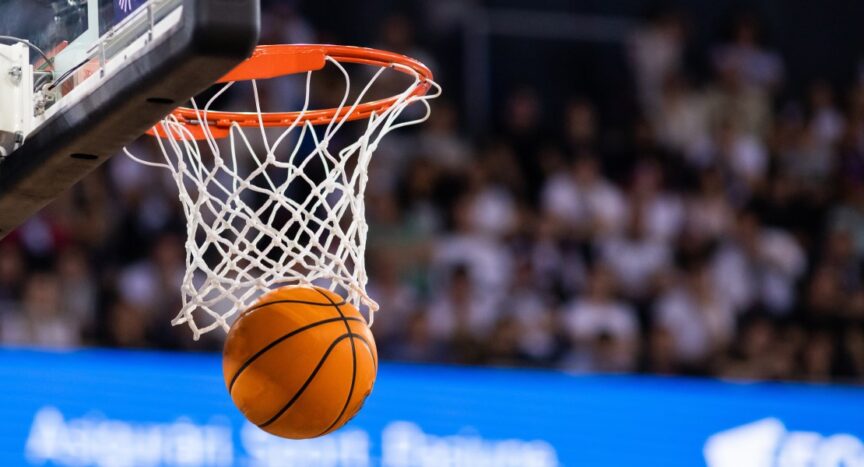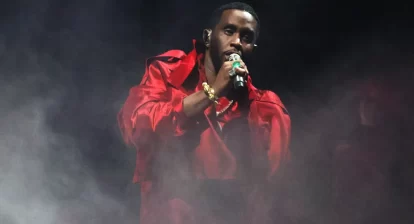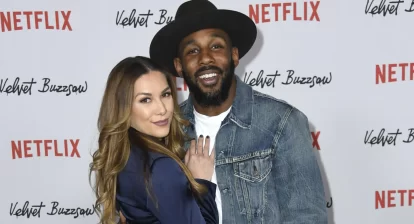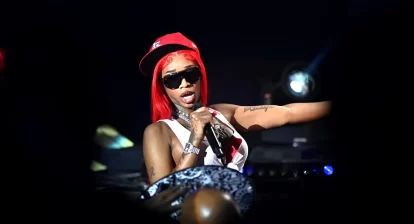Key Takeaways
- Black NBA pioneers like Lloyd, Cooper and Clifton faced hostility and racial prejudice, but their resilience paved the way for future Black players.
- The on-court excellence of Black players like Michael Jordan, Wilt Chamberlain and Kareem Abdul-Jabbar redefined basketball.
- Many Black players in the NBA use their fame to fight racial inequality and injustice.
- The influence of Black NBA stars goes beyond basketball and into fashion, music and youth culture.
The journey of Black players in the NBA began with Earl Lloyd, Chuck Cooper and Nat “Sweetwater” Clifton in 1950. The stories of these first Black NBA players, along with those who followed, often unintentionally contributed to civil rights initiatives. Black athletes faced outright hostility and racial prejudices both on and off the court, including the perception of being too indisciplined and ungrateful. They mustered tremendous courage and faced these injustices head-on despite the apparent risks to their careers.
A brief history of Black NBA players

Before the NBA integrated African Americans, Black athletes largely only showcased their talents at historically Black colleges and universities (HBCUs) and other collegiate programs. Cooper was the first Black player ever drafted by an NBA team. Clifton was the first to sign an NBA contract. Lloyd was the first to play in a regular-season game.
Carrying the weight of history, these first Black NBA players entered arenas where many didn’t want them and still played at a high level. In a time of segregation, they proved that their inclusion in the NBA was long overdue.
They were more than just basketball players. They were part of a larger social movement. Their play contributed to racial integration in sports, a key piece of the civil rights movement of the 1950s and 1960s.
Most influential Black basketball players
Black athletes in the NBA significantly influenced public opinion and propelled efforts toward racial equality. The following list highlights the most impactful and famous Black basketball players whose legacies left an indelible mark on both the game and American society.
Bill Russell
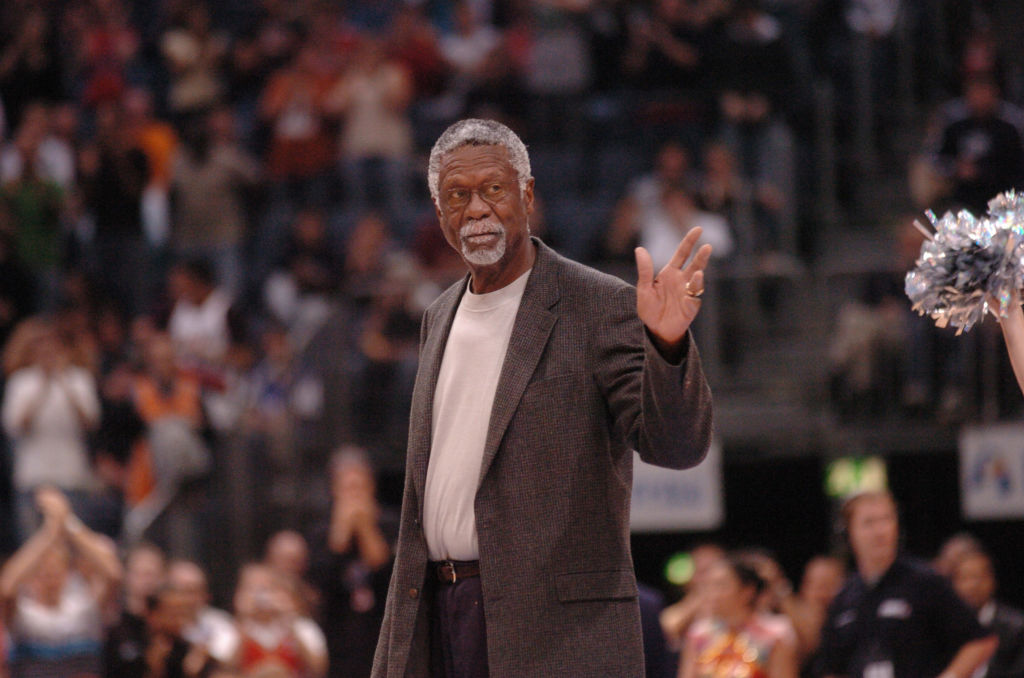
Bill Russell was a dominant center in the NBA in the 1960s. Russell played 13 championships with the Boston Celtics and won 11 titles. He was the first Black coach of an NBA team and the second American head coach in professional basketball after John McClendon.
When a coffee shop in Lexington, Kentucky refused to serve two of his Black teammates, they withdrew from a scheduled NBA exhibition game and left the state. The incident made national news. Russell’s dominance on the court and his willingness to risk his athletic accomplishments to fight for his core convictions earned him recognition as a leader in both sports and civil rights.
Kareem Abdul-Jabbar
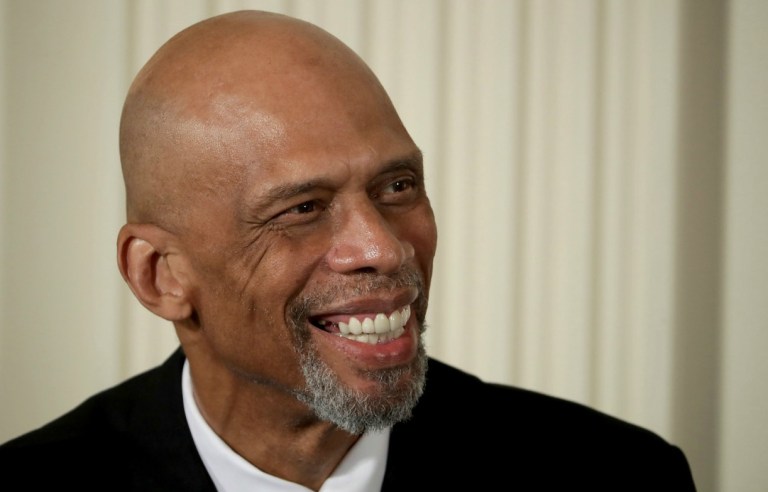
Kareem Abdul-Jabbar is a basketball legend with six NBA championships and an all-time scoring record of nearly four decades. Even though he was not as physically imposing as Wilt Chamberlain and Willis Reed, Abdul-Jabbar was close to invincible thanks to his wonderful shooting skills and graceful post moves. His signature skyhook made him nearly impossible to defend and he was an outstanding passer.
In the early 1970s, as the numbers and capital of African American players grew, Abdul-Jabbar, along with many NBA Black players, grew fed up with white Americans’ restricted expectations of what Black athletes could achieve. Together, they stopped accepting the rules of the white basketball establishment, both on and off the court. They fought for free agency and a fair share of the profits.
Abdul-Jabbar’s conversion to Islam makes him one of the few Muslim voices in this racial conversation. His activism, like his skyhook shot, became an iconic part of his legacy, inspiring other core players in the league to advocate for social causes.
Michael Jordan
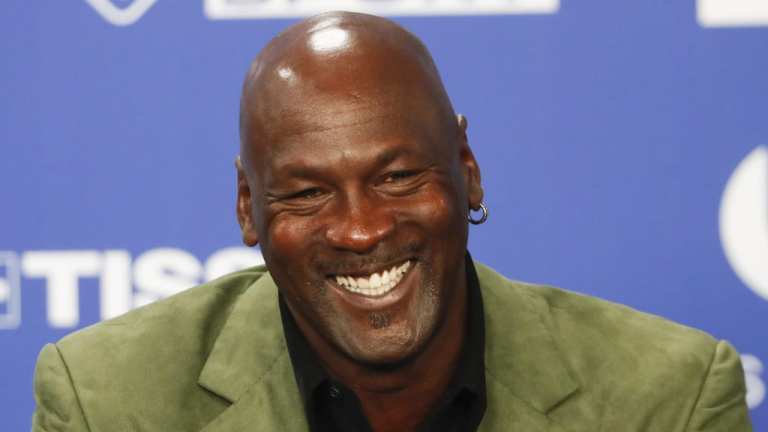
Michael Jordan is the most famous basketball player in the world. He won six NBA championships, five MVP awards and two Olympic gold medals. He was an excellent offensive player, yet many would agree that he was also a pretty decent defensive player. By the 1990s, he had become a global emblem for the NBA.
Critics accused Jordan of not being as vocal about civil rights as other players in the NBA, but his quiet activism potentially paved the way for the current spotlight on NBA stars. At an all-white golf club event, Jordan reportedly threatened to withdraw unless they promised to change their white-only membership policy.
In July 2016, Jordan donated $1 million to the NAACP Legal Defense Fund and another $1 Million to The Institute for Community-Police Relations. He hoped to improve trust between civilians and local police departments, especially after a series of shootings across the country involving police officers and unarmed people of color. His June 2020 $100 million pledge, alongside Nike’s Jordan brand, to support social justice causes may be his most significant contribution yet.
Magic Johnson
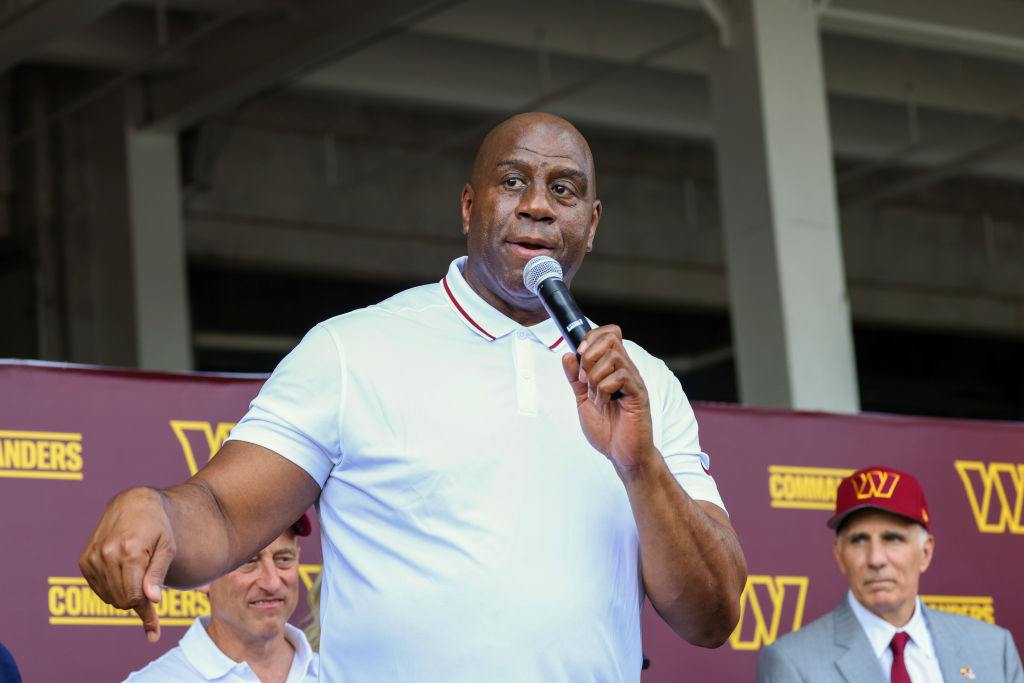
Magic Johnson transformed the point guard role with his size, vision and playmaking. He captured five NBA championships and three MVP awards and was an excellent passer. He made openings where there were no clear shots and his unique court vision allowed him to see plays before they unfolded.
After retiring from the NBA due to his HIV diagnosis, Magic Johnson founded the Magic Johnson Foundation. The organization focuses on raising HIV/AIDS awareness in low-income communities.
In 2007, the National Civil Rights Museum awarded Johnson the Freedom Award. The museum honored him for helping spur economic development, improving health services and expanding educational opportunities in often neglected inner-city areas.
LeBron James
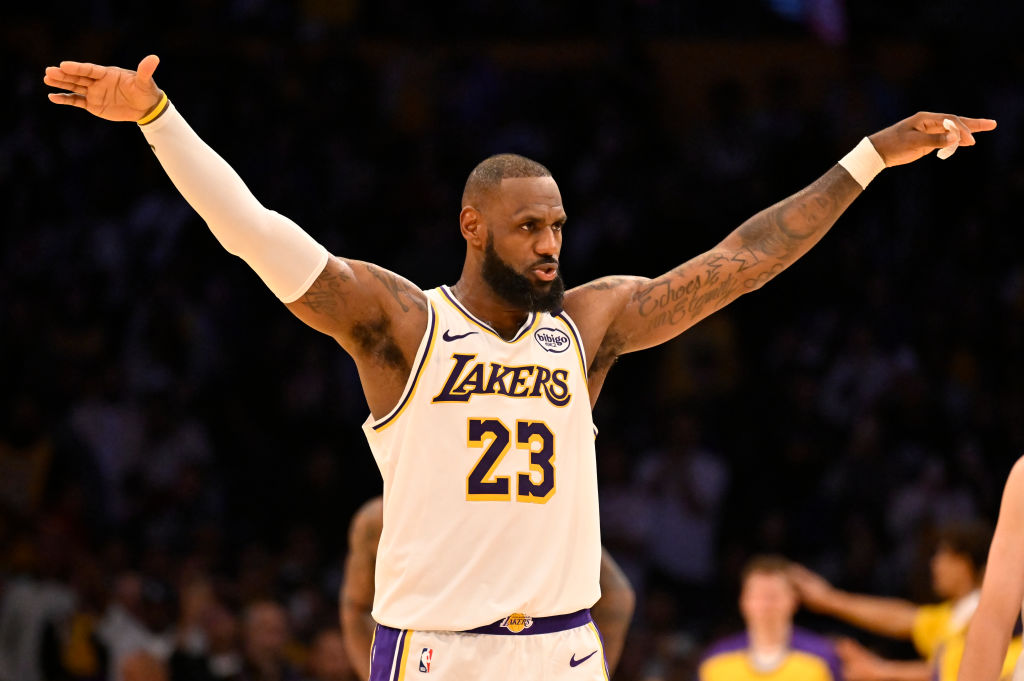
LeBron James is a basketball legend, with four NBA championships and three Olympic gold medals. For many Americans, he is the undisputed face of the NBA. In 2023, he surpassed the long-standing record that Kareem Abdul-Jabbar set of 38,387 points, becoming the league’s leading scorer of all time.
James competed for renowned teams like the Miami Heat and Cleveland Cavaliers, winning championships with all three franchises and cementing his legacy as one of the most versatile players in NBA history. His all-around game established new standards for modern players. In a first this October, Lebron and Bronny, his son, played together in an NBA game, making history.
Off the court, James’ commitment is equally impressive. The challenges he faced growing up in Akron, Ohio are a big part of what drives his dedication to social justice. In 2018, he founded the I Promise School. He saw the school as an important first step towards ending cycles of poverty in his community. James is also very vocal in the fight against racial inequality, police brutality and voter suppression.
Kobe Bryant
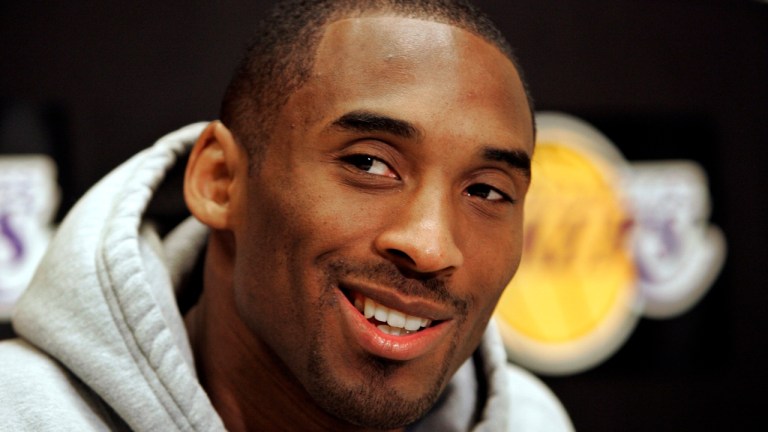
In just over two decades, Kobe Bryant won five NBA championships, earned two NBA Finals MVP awards and became an 18-time NBA All-Star. His 81-point game against the Toronto Raptors was one of the highest-scoring NBA games. He also holds the record for most points in a game by a player aged 36 or older.
Kobe Bryant’s influence went beyond basketball. He became a cultural icon and a standard that would inspire athletes of all sports with the “Mamba Mentality”—a mindset of relentless, unyielding determination. When he died in a helicopter crash in January 2020, there was an outpouring of tributes from around the world. The NBA honored him by renaming the All-Star Game MVP Award after him.
Bryant was also a vocal advocate against racial injustice and discrimination. In 2014, he led the Lakers in wearing ‘I can’t breathe’ T-shirts during pregame warmups and on the bench in support of Eric Garner, an African American who died after a police officer placed him in a chokehold. In 2021, the Naismith Memorial Basketball Hall of Fame posthumously honored Kobe Bryant.
Oscar Robertson

Oscar Robertson, a 12-time NBA All-Star, is one of the greatest basketball players ever. He dominated most of the games he played throughout the 1960s. In 14 seasons with the Cincinnati Royals and Milwaukee Bucks, Robertson scored 26,710 points, making him the top-scoring guard at the time and placing him 15th in NBA history.
Robertson was a forceful voice for player rights off the court. As president of the NBA Players Association, he championed player empowerment and labor relations in the league. In April 1968, when Dr. Martin Luther King Jr. was assassinated, Robertson organized a benefit game in King’s honor.
Wilt Chamberlain

Wilt Chamberlain is one of the best offensive game players ever in the history of the NBA. He won four MVPs, 11 rebounding titles and two championships while being an elite scorer and defender. Known for his dominance on the court, he was one of the best defenders of his era, putting him in the same caliber of play as Bill Russell. In 1978, the Naismith Memorial Basketball Hall of Fame honored Wilt Chamberlain.
Chamberlain’s influence extended beyond basketball, leaving a lasting legacy in sports and culture. His estate, valued at $25 million upon his death, reflected his commercial appeal and impact on the game.
Allen Iverson
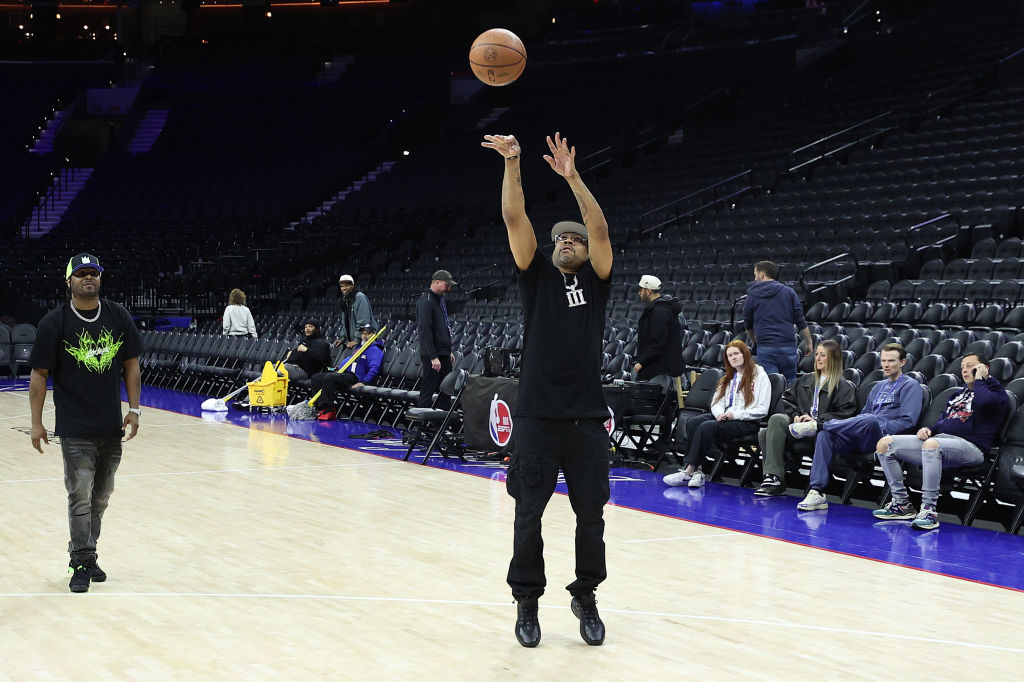
In 1996, the Philadelphia 76ers drafted Allen Iverson first overall. Soon, fans fell in love with his electrifying speed, agility and unique playing style. He emerged as a pop culture sensation, merging NBA swagger with hip-hop aesthetic. His tattoos, baggy clothes and brash persona spoke to a younger generation of fans who did not follow along with the more conventional image pushed by the NBA. In 2005, the NBA created a strict dress code that critics saw as a reaction to Iverson’s fashion and cultural influence. They called the revised dress code racially motivated.
Iverson’s legacy is multifaceted. He changed how many played basketball and shone a light on the plight of Black athletes. His career touched off impassioned debates about race, privilege and the obligations of Black sports stars, cementing his legacy as a groundbreaking figure in sports and the broader culture.
Dwyane Wade
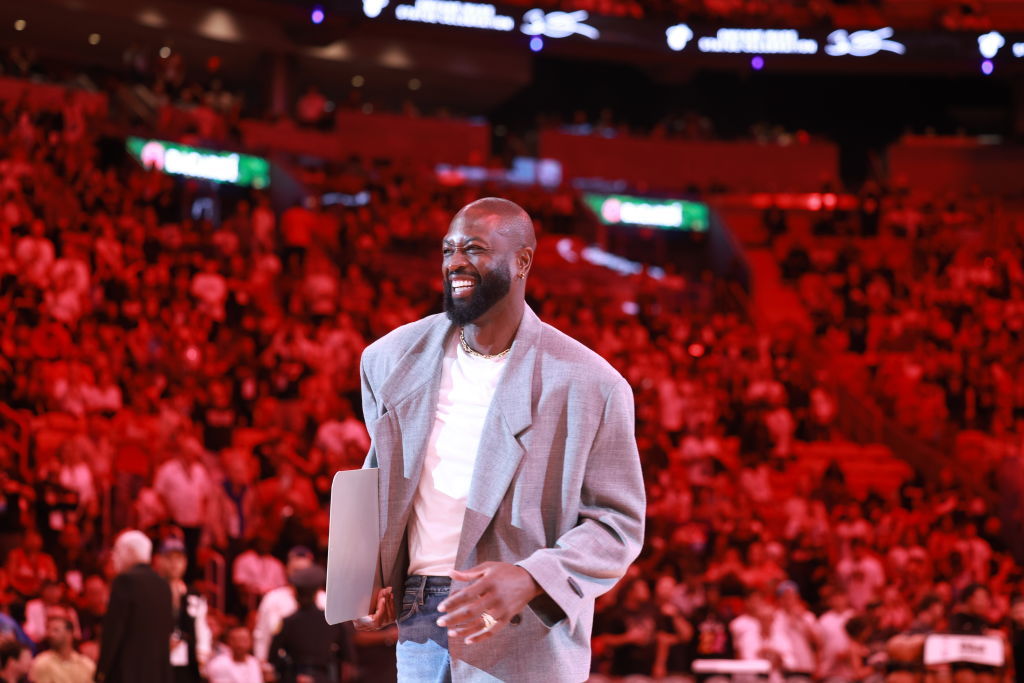
Dwyane Wade is one of the greatest shooting guards in NBA history. He played the majority of his career with the Miami Heat, won four MVPs and led the Miami Heat to NBA championships three times. In 2023, the Naismith Memorial Basketball Hall of Fame inducted him.
Wade is a fervent advocate for social justice. He is also a co-founder of Social Change Fund United, which invests in programs that benefit communities of color.
In 2021, a year after his daughter Zaya came out as transgender, Wade relocated his family from Florida to California, pointing to the growing anti-LGBTQ+ legislation initiatives in Florida. Last May, Wade and Zaya launched the Translatable Project, an online resource for trans youth and their families.
The social and cultural impact of Black NBA players
The integration of the NBA in the 1950s was a pivotal moment for sports across the U.S. The presence of Black basketball players helped break down racial barriers and opened opportunities for future Black athletes.
From Bill Russell, who opposed racism on and off the court in the 1960s, to today’s players pushing for criminal justice reform, community safety and voting rights, many Black NBA players consistently use their platforms for progressive values.
In addition, NBA Black players evolved into cultural icons. Players like Michael Jordan and Kobe Bryant transcended their on-court success to influence global culture. Others shaped fashion, music and social narratives. Thanks to the Black players’ influence, the NBA’s connection to hip-hop culture deepened, expanding its reach to a younger audience.
Many Black athletes in the NBA serve as representatives and sources of inspiration for Black communities. For decades, their success helped challenge stereotypes about Black athletes in a sport that originally only white men could play. This visibility empowers young Black people to strive against all odds and pursue their goals with pride.
The ongoing legacy of Black NBA players
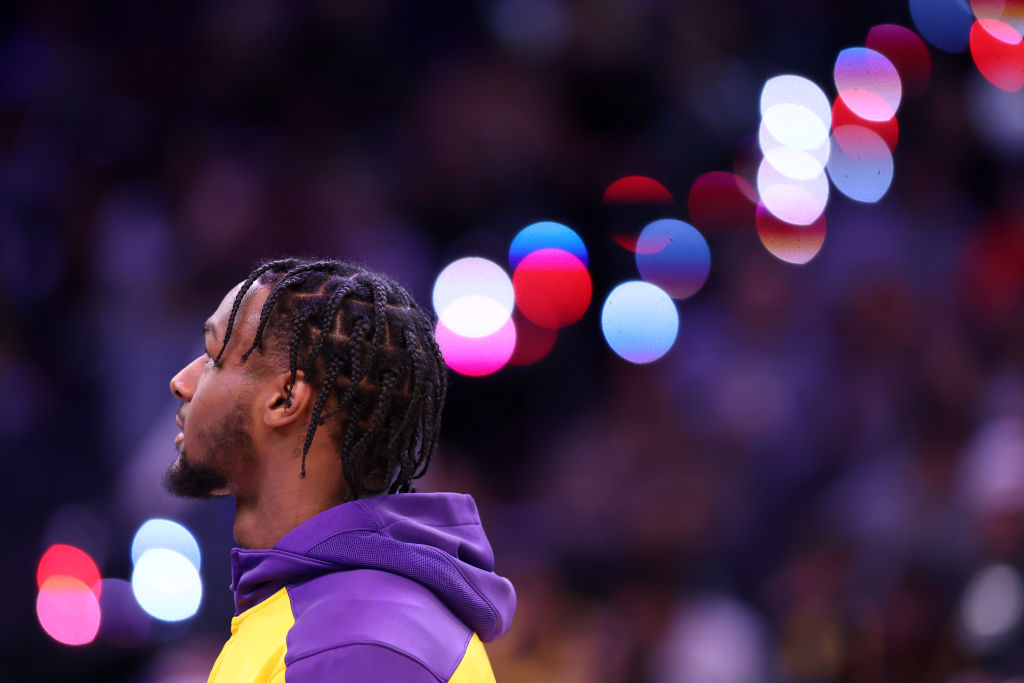
The impact of Black NBA players on basketball, social justice and popular culture through their on-court excellence and off-court leadership is noteworthy.
On-court excellence
Black players continue to dominate the NBA with their talent and athleticism. The league pays tribute to them with awards like the NBA 75th Anniversary Team and inductions into the Hall of Fame. Today, players like Stephen Curry of the Golden State Warriors and LeBron James shape the global image of basketball. Their success challenges stereotypes and highlights the influential role Black athletes play in shaping culture, business and politics globally.
Off-court leadership
A basic statistic from the National Basketball Association shows that Black players make up around 70% of the NBA today. They are also the league’s most vocal advocates for social justice. The National Basketball Social Justice Coalition, which brings together players, executives, head coaches, assistant coaches and team governors, is a good example of the difference such advocacy can make. The coalition reflects Black athletes’ commitment to criminal justice reform, community safety and voting rights.
The everlasting influence of Black NBA players
Black talent played a key role in the NBA’s growth into a global brand. Star players expanded the league’s appeal to a diverse audience. Take a closer look at the league’s merchandise sales and broadcasting deals, and you will see the results of the influence of Black NBA stars.
Black players also pushed for better contracts and working conditions. Their fight for free agency rights and fair pay helped raise the bottom line for all athletes, promoting a more just league. Today, the NBA includes players of various backgrounds, including a significant number with African roots.
While there’s more work ahead to make the NBA more equitable, there is no denying that Black players are an overwhelmingly positive force in professional sports leagues. They continue to do their part in promoting civil rights and redefining racial consciousness in the U.S. and beyond.
!function(){var g=window;g.googletag=g.googletag||{},g.googletag.cmd=g.googletag.cmd||[],g.googletag.cmd.push(function(){g.googletag.pubads().setTargeting(“has-featured-video”,”true”)})}();
More must-reads:

